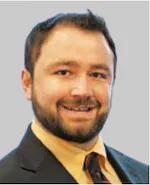Commentary
Article
Renting or buying: Which is the better option for physicians?
Author(s):
"Early-career physicians should ask themselves whether they really need to purchase a home right away or whether they would be better served renting for a few years," writes Jeff Witz, CFP.
Jeff Witz, CFP

Across the country, rent and housing prices continue to grow at a staggering pace. High interest rates have resulted in many homeowners deciding to stay in their current homes instead of selling and having to purchase a new home at a higher interest rate. With few people willing to sell in this environment, there is a shortage of homes available on the market. The competition for houses that do hit the market is fierce, which has bumped up housing prices. The median sale price for a home in the United States was $412,300 in the second quarter of 2024, according to the Federal Reserve Bank of St. Louis. Although lower than the all-time record set in the fourth quarter of 2022, when the median sale price of a home was $442,600, it’s still a significant increase from prepandemic prices.1
In the rental world, increased costs for landlords caused by inflation and rising property taxes in many parts of the country are the primary reason rents have grown significantly as well. Many physicians, especially early-career physicians, find themselves asking the difficult question of whether to continue renting or to buy a home.
Buying has traditionally been favored, but increased costs have caused many to question whether it is the right path for them. To evaluate whether buying is the right option, physicians should consider their lifestyle, age, work situation, and readiness to choose a location they would like to live in for potentially many years.
The advantages to purchasing a home are fairly straightforward. You can build equity in the property. The value of the property may appreciate, acting as an investment. However, just like any investment, there is the risk that the value drops instead of rises. There may also be state and federal tax benefits to homeownership. Finally, with homeownership, the house is yours and you have near-complete creative freedom.
The downside to homeownership is also fairly straightforward. There are added expenses such as homeowner’s insurance, a flood insurance policy, homeowner association fees, property taxes, and higher utility bills. Repairs and remodeling expenses are the homeowners’ responsibility. In general, owning requires more time, labor, and finances.
Renters don’t have to worry about these ongoing expenses and regular upkeep, and they have the freedom to move in relatively short periods of time if their tastes change, they don’t like their neighbors or neighborhood, or the rental unit isn’t maintained to their standard. But they are not building equity.
Those are the more universal pros and cons, but the debate between homeownership and renting is often more complicated for physicians. Debt levels can be a serious consideration. The average medical school debt is $202,453 when excluding pre–medical school debt obligations, according to the Education Data Initiative.2 As an attending, a physician’s student loan payments are likely going to jump dramatically compared with their income-based payments during residency and/or fellowship. Physicians should use caution and learn what their student loan responsibilities will be before taking on a mortgage.
Physician-specific loans can also be enticing. These loans offer low to no required down payment as well as favorable interest rates and terms. For some physicians, this can be an excellent option. However, for others, it can result in unsustainable levels of debt. Not making a down payment means a higher overall debt level, faster interest accumulation, and higher monthly payments. If a physician has $200,000 in student loans and takes out a $500,000 to $800,000 physician loan to purchase a home, they could find themselves $700,000 to $1,000,000 in debt before they’ve worked one day as an attending. For some, that is not sustainable.
It is also important for physicians to remember their contract terms when considering homeownership. Most first-time attending physician contracts are for 3- to 4-year periods. Following the first contract, many physicians look for new employment, and those opportunities may be far away from where they just purchased a home. Owning a home can make relocation difficult. Additionally, most physician contracts guarantee a salary for only the first 2 to 3 years and then transition to a relative value unit structure. Many physicians see a drop in their income during this transition, and if that’s not planned for, a once-affordable mortgage may not be going forward.
Early-career physicians should ask themselves whether they really need to purchase a home right away or whether they would be better served renting for a few years. Renting could buy time to determine whether their current location is where they will put down long-term roots and to save for a down payment that produces a manageable mortgage payment. Overall, everyone’s situation is unique and there is no single right answer. We recommend speaking with your financial adviser about the pros and cons of homeownership.
REFERENCES
1. Median sales price of houses sold for the United States. Federal Reserve Bank of St. Louis. July 24, 2024. Accessed August 16, 2024. https://fred.stlouisfed.org/series/MSPUS
2. Hanson M. Average medical school debt. Education Data Initiative. Updated September 17, 2023. Accessed August 16, 2024. https://educationdata.org/average-medical-school-debt
8750 W. Bryn Mawr Ave. Suite 325 Chicago, Illinois 60631
312-419-3733 - Toll Free 800-883-8555 - Fax 312-332-4908 - www.mediqus.com
Investment advisory services offered through MEDIQUS Asset Advisors, Inc. Securities offered through Ausdal Financial Partners, Inc.Member FINRA/SIPC ∙ 5187 Utica Ridge Rd ∙ Davenport, IA 52807 ∙ 563-326-2064 ∙ MEDIQUS Asset Advisors and Ausdal Financial Partners, Inc. are independently owned and operated.
Effective June 21, 2005, newly issued Internal Revenue Service regulations require that certain types of written advice include a disclaimer. To the extent the preceding message contains written advice relating to a Federal tax issue, the written advice is not intended or written to be used, and it cannot be used by the recipient or any other taxpayer, for the purposes of avoiding Federal tax penalties, and was not written to support the promotion or marketing of the transaction or matters discussed herein.
The information contained in this report is for informational purposes only. Any calculations have been made using techniques we consider reliable but are not guaranteed. Please contact your tax advisor to review this information and to consult with them regarding any questions you may have with respect to this communication.
MEDIQUS Asset Advisors, Inc. does not provide tax, legal or accounting advice. This material has been prepared for informational purposes only, and is not intended to provide, and should not be relied on for, tax, legal or accounting advice. You should consult your own tax, legal and accounting advisors before engaging in any transaction.
Newsletter
Stay current with the latest urology news and practice-changing insights — sign up now for the essential updates every urologist needs.

















